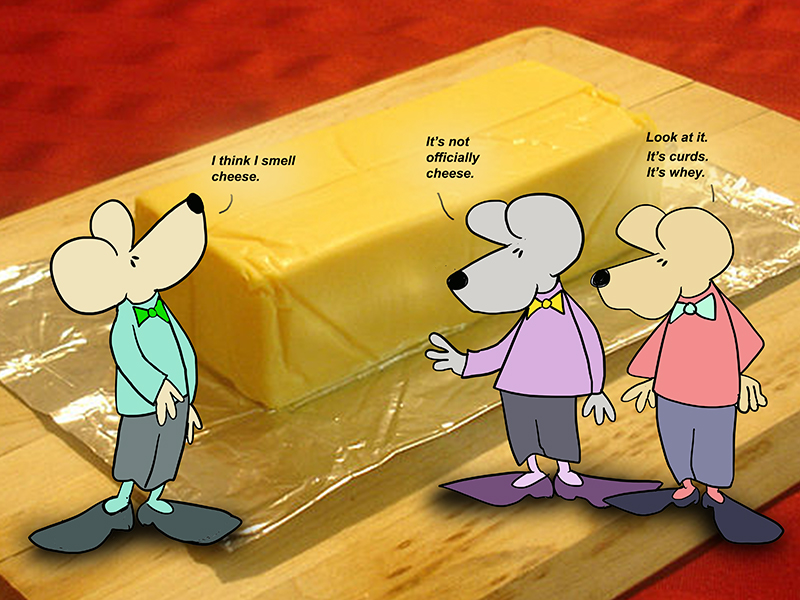Today is a proud day for me, of sorts. This, June 2, is the anniversary of the birth of Velveeta Cheese. Kraft Foods introduced this cheese stuff into this world in 1928, officially. You see, my life, or a big portion of it, was built on Velveeta Cheese.
But before I was born, Velveeta had quite a history. Back in the early 1900s, a business called the Monroe Cheese Company lived in New York. They were one of the country’s most successful cheesemakers, however, it is you gauge those sorts of things.
But the Monroe Cheese Company had a little problem that wasn’t so little. They dealt in all sorts of cheese, and they had some trouble with their Swiss. Many of the Swiss cheese wheels that came out of its Pennsylvania factory were broken or disfigured. A lot of cheesy waste was occurring.
So they called in their big gun. Yes, they had an in-house cheese guru. Their Cheese Wiz, if you will. His name was Emil Frey, and he was a Swiss immigrant. Hence, the holy cheese. Earlier, he had invented Liederkranz. For those who don’t know it, Liederkranz is a popular American take on Limburger cheese.
Sidebar German Lesson. If a word has “ie” — you pronounce it with a hard E. Liederkranz is Leeeederkranz. If a word has an “ei” — you pronounce it with a hard I. Weiss is Why-ssss. The second letter in the “ie / ei” is always the hard vowel.
Anyway. Honest to goodness truth, Frey puttered around with the cheese pieces on his little stove at home. Eventually, he found that adding byproducts like whey back into the cheese helped in amazing ways. He could then create a smooth, pliable food product. Of course, when you melt the stuff, it has a consistency of velvet. So Frey called it Velveeta.
For four years, Velveeta was its own big show, operating out of Monroe, New York. But, in 1927, Kraft purchased the company. Kraft, who knew a lot about cheese, had been tinkering around with their own processed cheese technology. But they wanted a big boost, so they tweaked Frey’s formula and then used the Swiss inventor’s name in their marketing materials. That was on this date, in 1928.
People loved it everywhere. They even loved it in Germany. It seems that demand was so high for Velveeta in Deutschland, that the company’s plant in Lindenberg could barely keep up with production.
But the sad, sad thing about Velvet is that it is not considered real cheese. Just like Pinocchio was not a real boy. Early on, real cheese used to be part of the product. But in modern times, Velveeta is mainly “whey protein concentrate and milk protein concentrate mixed with milk, fat, and preservatives.” And, according to the Food and Drug Administration, this is not technically cheese. In fact, in 2002, the FDA sent the company a lengthy and strongly worded letter, warning them to change their labeling from “cheese spread” to “cheese product,” and Kraft complied.
Somewhere, in the years between those events, I became familiar with Velveeta Cheese. There was not a day in my life when I couldn’t swing open the refrigerator door and see that yellow box of cheese with the bright red letters sitting on the shelf.
It was on our grilled cheese sandwiches and in our scrambled eggs. There was not a cheesy potato dish on our kitchen table, without melted Velveeta, somewhere inside. Later, we had trendy dips.
Growing up, Velveeta was my mom’s go-to cheese, while dad would sit at the end of the table, with his little block of cheddar, a small jar of mustard, and saltine crackers, saying, “Cheddar is better.” This was the closest thing I’d ever seen to a fight between the two.
Regardless, I am grateful to have had Velveeta in my formative years. In 1931, the American Medical Association claimed Velveeta had all the nutritional qualities to promote “firm flesh.” And look at me now.
No matter. I give homage to Velveeta on this day. Cheese’s best imposter.
==========
“It’s okay to love something a little too much,as long as it’s real to you.”
― Gerard Way
===========
“Always be a first rate version of yourself and not a second rate version of someone else.”
― Judy Garland
===========
“Poets have been mysteriously silent on the subject of cheese.”
― G.K. Chesterton, Alarms and Discursions
===========
Say cheese, please. Even if it is not.
